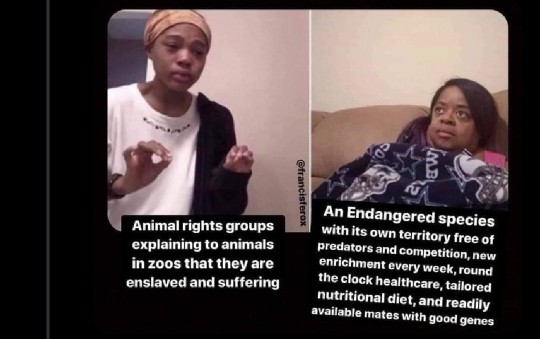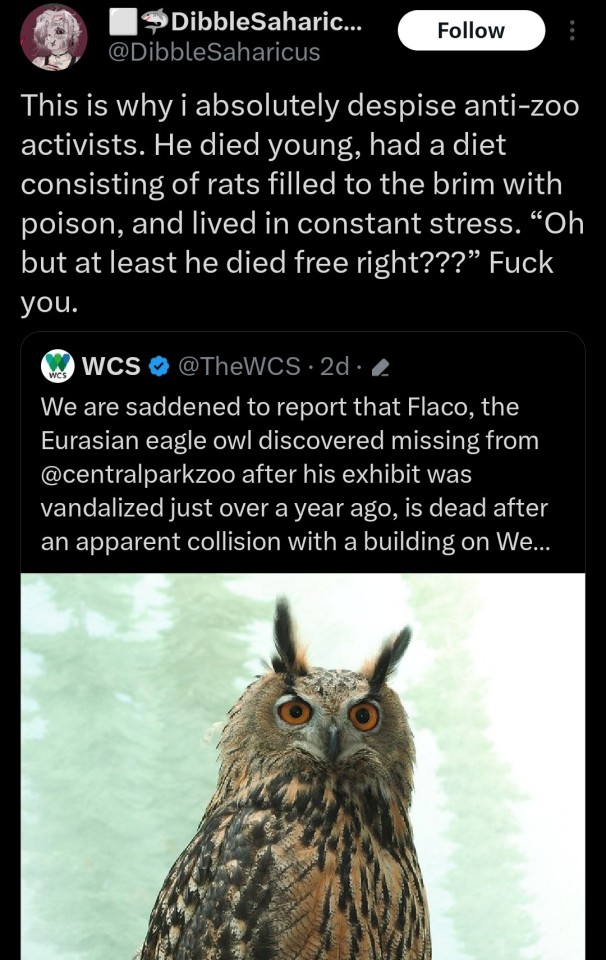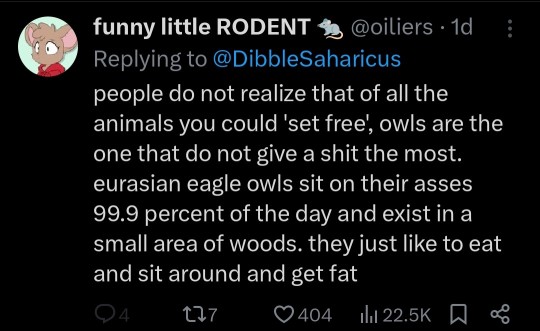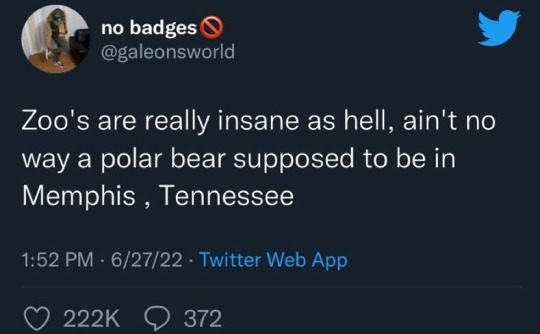#zoos
Text
So... it seems I accidentally deleted an ask rather than answering it. To whoever asked "is it okay to visit SeaWorld? Does the money go to giving the orcas good care?"... here is your answer!
The SeaWorld parks, as well as Busch Gardens, Discovery Cove, and a few others, are operated by the recently renamed United Parks and Entertainment, a for-profit theme park company. Like any other corporation, their first goal is to remain profitable. Obviously, a large portion of that goes to corporate leadership and shareholders. But that's far from unique to United, or theme parks in general. It's a byproduct of the greedy world we live in. If you're willing to buy a ticket to Disney or Six Flags, then buying a ticket to a SeaWorld or Busch Gardens is no more immoral.
According to the AZA, approximately 46% of their members are for-profit. And while AZA zoos certainly vary in quality (anywhere from "acceptable" to "exceptional" in my opinion), for-profit status does not cheapen or detract from the work they do. In fact, for-profit institutions often have more financial freedom for animal care and conservation efforts than their non-profit counterparts. Non-profit zoos and aquariums are wonderful places, but believe me when I say there's a startling amount of politics in every aspect of their management. Non-profit status does not automatically make a zoo better, and for-profit status does not automatically make a zoo worse.
Now... do SeaWorld ticket sales go toward giving their orcas (and other animals) good care? Yes.
While it's certainly simplistic for parks to claim, as they do, "just by buying a ticket today you're helping save animals in the wild!"... it's not exactly a lie. Being for-profit, SeaWorld doesn't ask for donations to fund park operations or outreach endeavours. That revenue is generated by selling tickets, merchandise, food, etc. The same goes for their wildlife rescue and rehab program, Rising Tide conservation program, Coral Rescue Center, and the SeaWorld-Busch Gardens Conservation Fund, as well as partner organizations like OCEARCH and the Hubbs-SeaWorld Research Institute.
Take ticket sales away, and they can't care for their animals, or continue to fund conservation projects. While I don't know the whole story of what exactly is going on with Marineland Antibes, it appears that the park is in a dire financial situation due to plummeting attendance, to the point that they can no longer maintain their killer whale habitat and are trying to offload their animals onto an Asian aquarium or, potentially, an as-of-yet non-existent third party sea pen. While certainly well-meaning, years of boycotts against Marineland ultimately put their animals in a position where they are not being properly cared for. And it would be horrifying if the same thing happened to SeaWorld. I don't think many people, in their fervor to punish the parks for their perceived misdeeds and save the animals, thought about what the reality of driving a zoological facility into financial ruin would look like.
Don't get me wrong, SeaWorld's shift toward promoting itself as a thrill park that also does conservation rather than a marine facility that happens to have roller coasters annoys me. I would have rather they built a separate, neighboring park for the rides, or at least integrated them into the existing park less obtrusively (Disney's Animal Kingdom, for example, seemlessly integrates the theme park and zoo elements, although they have the benefit of the incredibly talented Imagineering team behind them). But as tiresome as the constant roller coaster announcements are, they are what kept the company afloat financially in the years immediately following Blackfish, drawing in a crowd that previously had no interest in the parks, and for that I'm grateful. Thankfully, SeaWorld is in a better spot nowadays. But the only way to convince them that their animals, not their roller coasters, are what people want to see... is to visit and see the animals.
In short, yes, part of your SeaWorld ticket funds care for their orcas and their many admirable projects. Now if only more of it went to giving their staff better salaries.
#their staff make less money than a lot of other major theme parks#the animals have great care... the people uh...#not as much#seaworld#zoos#aquariums#conservation#answered asks#anonymous
34 notes
·
View notes
Text
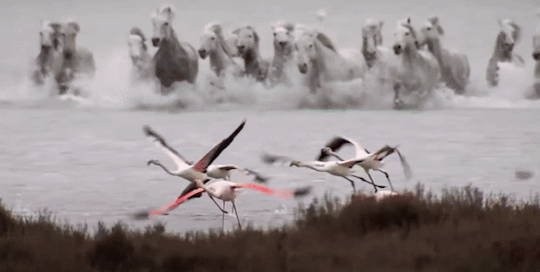
#horses#horse#animals#mustangs#science#education#nature#photography#animal#landsccape#cute animals#funny#lol#adorable#landscape#paradise#explore#gifs#beautiful#beauty#primates#zoos#mammals#wild animals#wildlife#mountain#incredible#running#wetland#river
25 notes
·
View notes
Text
Im fucking sobbing looking at the new black footed cat at Utah's Hogle zoo
Shes just a fucking baby
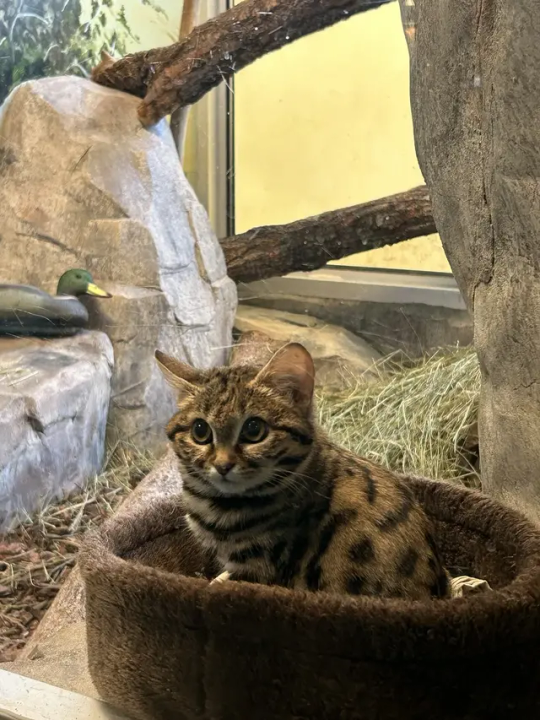
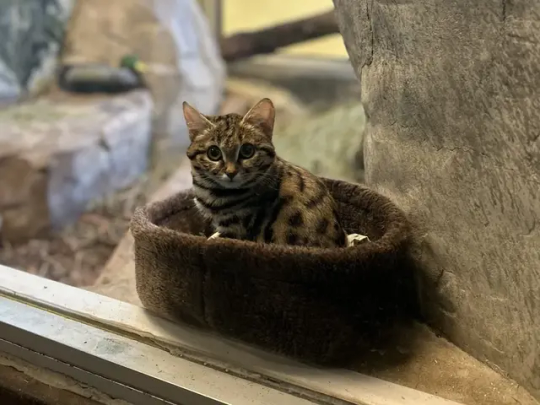
Baby with a 60% successful kill rate
#wrenfea.article#theres a video in the article#her name is gaia and shes 8 months#shes part of the AZA breeding program#i now have a reason to visit utah#leetle baby gorl#black footed cat#conservation news#conservation#zoos#animals#also the highest successful kill percentage for big cats is like. 25%#so 60% is fucking crazy
50K notes
·
View notes
Text
"In one of Africa’s last great wildernesses, a remarkable thing has happened—the scimitar-horned oryx, once declared extinct in the wild, is now classified only as endangered.
It’s the first time the International Union for the Conservation of Nature (IUCN), the world’s largest conservation organization, has ever moved a species on its Red List from ‘Extinct in the Wild’ to ‘Endangered.’
The recovery was down to the conservation work of zoos around the world, but also from game breeders in the Texas hill country, who kept the oryx alive while the governments of Abu Dhabi and Chad worked together on a reintroduction program.
Chad... ranks second-lowest on the UN Development Index. Nevertheless, it is within this North African country that can be found the Ouadi Rimé-Ouadi Achim Faunal Reserve, a piece of protected desert and savannah the size of Scotland—around 30,000 square miles, or 10 times the size of Yellowstone.
At a workshop in Chad’s capital of N’Djamena, in 2012, Environment Abu Dhabi, the government of Chad, the Sahara Conservation Fund, and the Zoological Society of London, all secured the support of local landowners and nomadic herders for the reintroduction of the scimitar-horned oryx to the reserve.
Environment Abu Dhabi started the project, assembling captive animals from zoos and private collections the world over to ensure genetic diversity. In March 2016, the first 21 animals from this “world herd” were released over time into a fenced-off part of the reserve where they could acclimatize. Ranging over 30 miles, one female gave birth—the first oryx born into its once-native habitat in over three decades.
In late January 2017, 14 more animals were flown to the reserve in Chad from Abu Dhabi.
In 2022, the rewilded species was officially assessed by the IUCN’s Red List, and determined them to be just ‘Endangered,’ and not ‘Critically Endangered,’ with a population of between 140 and 160 individuals that was increasing, not decreasing.
It’s a tremendous achievement of international scientific and governmental collaboration and a sign that zoological efforts to breed endangered and even extinct animals in captivity can truly work if suitable habitat remains for them to return to."
-via Good News Network, December 13, 2023
#chad#abu dhabi#north africa#rewilding#endangered species#conservation#zoology#conservation biology#oryx#good news#hope#texas#big game#animals#endangered#environmentalism#environmental science#zoo#zoos#zoo animals
24K notes
·
View notes
Text
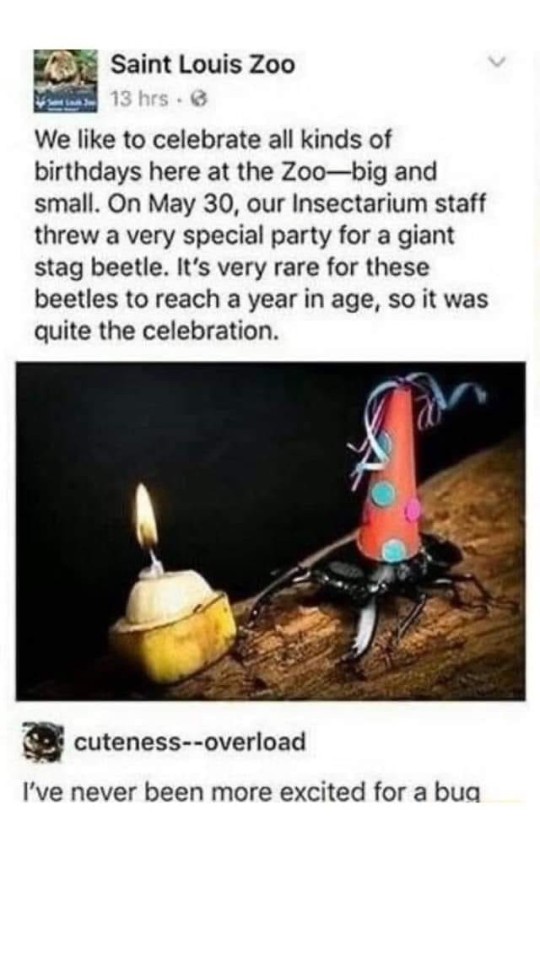
6K notes
·
View notes
Note
Hey uh I just found this out and I'm FURIOUS but miami zoo has a kiwi bird. Which is fine if they were doing what we do here and keeping it in a darkened enclosure with clear notices to be quiet and not bang on the glass. But instead this shy, solitary nocturnal bird is being kept in broad daylight and people are being allowed to pet it. NZ twitter is out for blood right now. https://twitter.com/zoomiami/status/1637864741954637824
…fucking yikes.
The kiwi I’ve seen in other AZA zoos have been kept according to the practices you describe: dark exhibit on a flipped light cycle, in a signed quiet area. What it looks like Zoo Miami is doing is… not good.
Here’s the link to their tweet with a video about the encounter (so it’ll embed):
The video shows a kiwi out of its exhibit: on a table in what looks like a back room with bright overhead fluorescent lighting. The kiwi has no room to move around and no place to hide as people pet it and reach around it to take selfies.
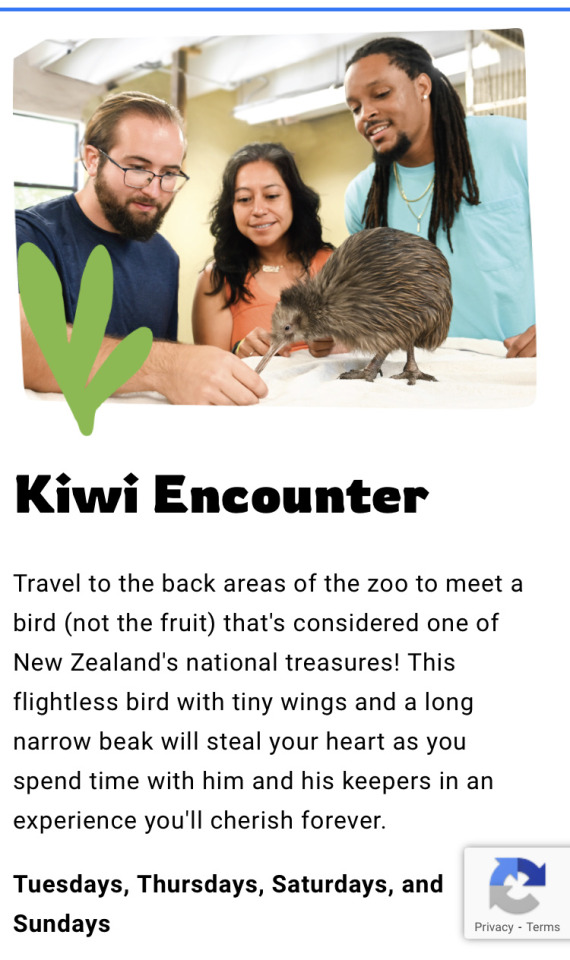
What do you pay to bother the kiwi four days a week - a species which in NZ is apparently illegal to touch without permission from the Department of Conservation? $25.
Obviously it just started and I don’t know anything more about it than what’s online, but even so, this is such a bad look for an AZA zoo, holy shit. I know a bunch of new ambassador animal rules just got promulgated… I wonder if this meets them. I’ll have to go do some reading. Also, USDA is now promulgating new bird rules (it didn’t regulate birds until just recently, only mammals) so this will also have to pass their muster soon.
The guy who runs Miami’s PR, and manages the animal media like the birth of their first kiwi chick in 2019, is known for big media stunts. I’m not surprised by this but I don’t think it’s going to go over well. There’s a lot of pressure on zoos to offer new encounters and programs to help make up for inflation and pandemic losses but this not how to do it.
I’d honestly suggest New Zealanders who are upset about this contact Zoo Miami formally (more than just on twitter) using the contact form on their website, and maybe even the AZA to express concerns about this program animal’s welfare - as well as the lack of cultural awareness at one of their accredited facilities.
Edited to add: a statement from Zoo Miami is supposed to be forthcoming tomorrow. I’ll update once we have it.
#AZA zoos#zoos#animal welfare#program animal welfare#zoo politics#kiwi#lack of cultural awareness is strong in this one
8K notes
·
View notes
Text
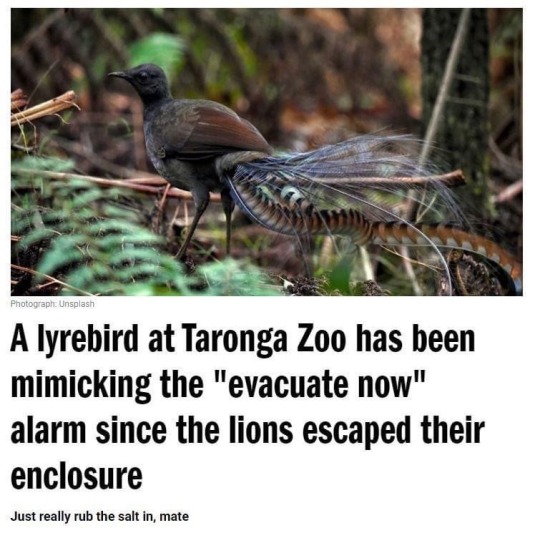
4K notes
·
View notes
Photo
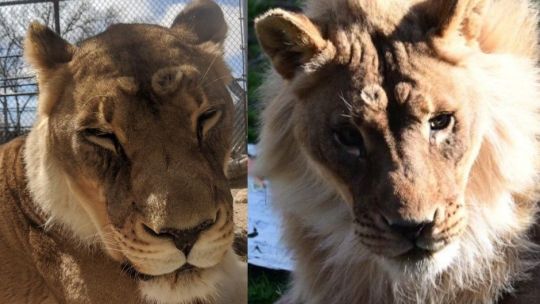
Elderly female lion grows 'awkward teenage mane,' baffling zookeepers
An elderly female lion at the Topeka Zoo in Kansas has sprouted a mane. This phenomenon has only been seen a handful of times.
sulc.us/femane
4K notes
·
View notes
Photo

Countries that had people displayed at zoos.
by geomapped
1K notes
·
View notes
Text
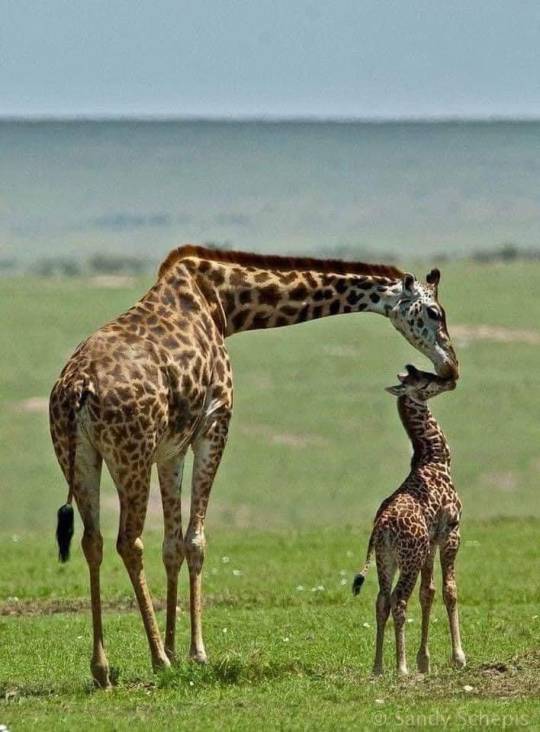
#photography#nature#art#tumbrl#photographers on tumblr#my photos#my post#explore#travel#giraffe art#zoos#trees and forests#forest#trees#sunshine#sunrise#sunset#sun and moon show#sun#awesome#best#great#sky#fauna#flora photography#flora and fauna#moon#mountains#cute#pastel
152 notes
·
View notes
Text
Woman at the zoo: Why do they look so sad? 😔
Sign literally 10 feet away:

57K notes
·
View notes
Text
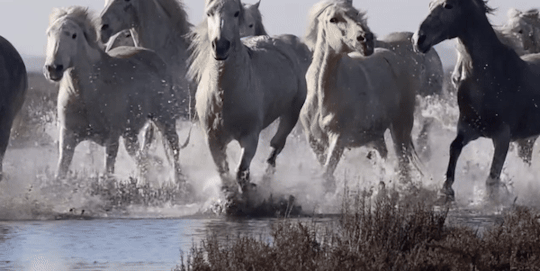
#horses#horse#animals#mustangs#science#education#nature#photography#animal#landsccape#cute animals#funny#lol#adorable#landscape#paradise#explore#gifs#beautiful#beauty#primates#zoos#mammals#wild animals#wildlife#mountain#incredible#running#wetland#river
24 notes
·
View notes
Text
God I hope that environmentalists, conservationists, zookeepers, etc. can figure out a way to unionize. I have no clue how a strike would work bc that would lead to our life's work being destroyed. If we stopped protecting these animals, ecosystems, etc. they would die. But it's horrible that getting a paid job is so freaking difficult bc you have to volunteer first, many positions require at least a college degree, and then when you finally get the job you're paid squat. Zookeepers usually have at the very least a bachelor's, most have doctorates. And get paid bupkis. But if we try to fight for higher wages we are called selfish and we are taking already limited resources away from those who need it most. Accredited zoos have to make difficult decisions to protect endangered species all the time, such as the Copenhagen Zoo deciding to put down a genetically invaluable Giraffe in order to make space for others.
I was able to ask one of the previous directors of the national zoo, "what is being done to insure fair wages for zookeepers, and expand opportunities to those who do not have the resources to volunteer?" I think I surprised her, but she said they were having workgroups and meetings on that issue. I believe that the national zoo has recently opened internships specifically for those with little experience, especially people of color, so that they can get training that will help them break into the field. I think they are paid but I'm not sure.
I don't think it's selfish for us to want to be able to afford rent, food, maybe a vacation once in a while too. We need to take care of ourselves so we can take care of our earth the best we can.
#conservation#environmentalism#environmental science#zookeeping#conservationists#aquarists#aquariums#zoos#this is mostly a rant if anyone needs specific info lmk#unions
1K notes
·
View notes
Text

Calvin & Hobbes
#Calvin & Hobbes#calvin and hobbes#comics#comic#cartoons#cartoon#memes#meme#captivity#zoos#zoo#animalrights#animals#animal#ecology#econotego#class war#earth#nature#art#ausgov#politas#auspol#tasgov#taspol#australia#fuck neoliberals#neoliberal capitalism#anthony albanese#albanese government
96 notes
·
View notes
